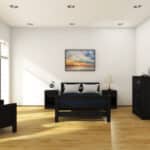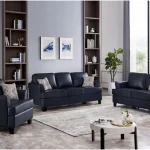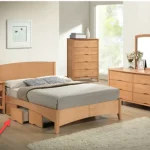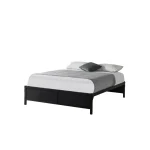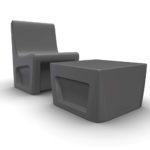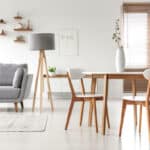Exploring the Connection between Outdoor Furniture and Stress Relief
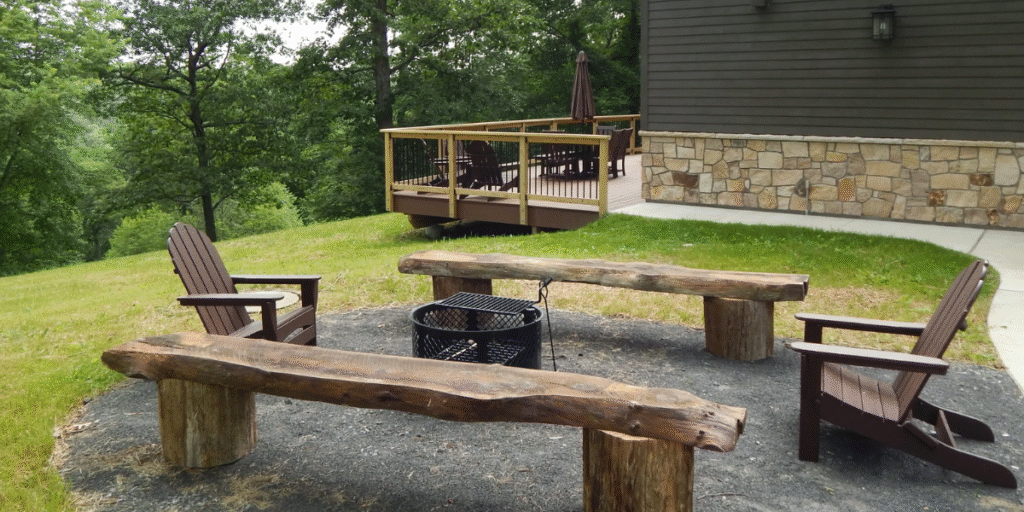
Access to restorative outdoor spaces can have a profound effect on mental health, recovery, and overall well-being. Research has shown that time spent outdoors can enhance mood, alleviate anxiety, and strengthen emotional resilience. For behavioral healthcare, residential care, addiction treatment centers, and human services facilities, the way these spaces are designed can directly influence recovery outcomes.
Thoughtfully chosen outdoor furniture, from comfortable seating to well-planned layouts, can turn open areas into therapeutic environments. These spaces can reduce stress, encourage mindfulness, foster social interaction, and enhance holistic recovery.
The Role of Outdoor Spaces in Mental Health and Recovery
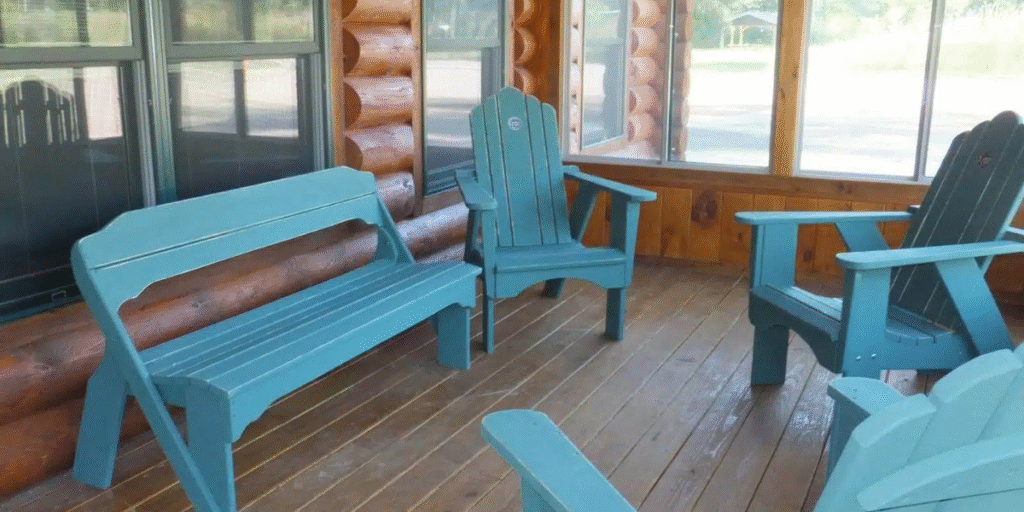
Outdoor environments contribute significantly to mental health and healing. In therapeutic settings, they provide a safe and calming environment that supports recovery. Outdoor seating for mental health facilities can promote comfort, safety, and emotional balance.
Nature Exposure and Stress Reduction
Spending time outside has been proven to lower cortisol levels, which can help ease anxiety and promote relaxation. Exposure to natural light, fresh air, and greenery can lift mood, improve cognitive function, and strengthen emotional resilience. Well-placed outdoor seating and lounge areas allow residents to connect with nature without leaving the facility, making stress relief easier to access.
Outdoor Seating for Mindfulness and Meditation
Comfortable outdoor lounge chairs and designated seating areas encourage meditation, deep breathing, and other mindfulness practices. Quiet outdoor spaces offer a safe, calming setting for reflection, journaling, or guided relaxation. Strategically placing outdoor stress-relief furniture supports both private and group mindfulness activities, enhancing therapeutic outcomes.
Social Connection and Community Building
Having outdoor areas is really important for promoting social interactions, and these connections are key to maintaining good mental health and aiding recovery. Group seating arrangements in outdoor lounge areas for addiction treatment centers encourage peer support, shared activities, and therapeutic conversations. Even short gatherings in these spaces can help reduce isolation, boost social engagement, and strengthen supportive networks among residents and patients.
Encouraging Daily Outdoor Living
Comfortable and inviting outdoor furniture encourages regular use, helping residents incorporate time in nature into their daily lives. Consistent exposure to outdoor environments can improve sleep, reduce restlessness, and increase participation in therapeutic activities. Outdoor lounge areas can serve as quiet reflection zones or spaces for gentle group exercise, supporting a variety of wellness needs.
Holistic Well-Being and Recovery Support
Outdoor spaces can nurture emotional, mental, and physical well-being all at once. A thoughtfully designed area with accessible outdoor furniture gives individuals a sense of autonomy, letting them choose how to engage with their surroundings. Incorporating these spaces into care plans can help speed recovery, enhance mindfulness, and improve quality of life for patients and residents.
Enhancing Comfort and Relaxation with Outdoor Furniture
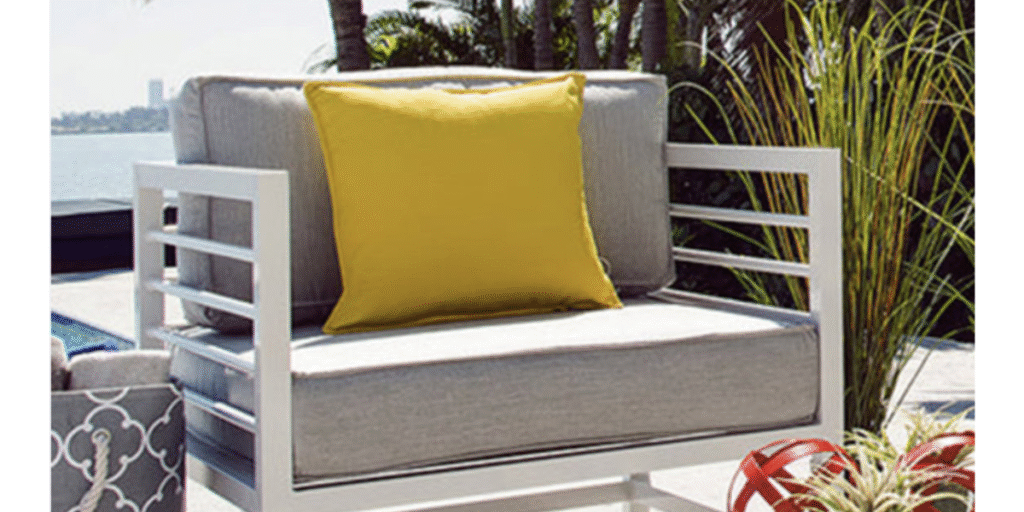
Comfort is essential for encouraging regular use of outdoor spaces. The right outdoor furniture can transform plain areas into welcoming retreats.
Creating a Comfortable Oasis
Sturdy outdoor lounge chairs and cushioned benches encourage residents to relax and spend more time outside. Built with weather-resistant materials, this outdoor seating remains inviting and functional throughout the changing seasons.
Embracing Serenity
Low-profile chairs, meditation stools, or hammocks can enhance relaxation. Outdoor seating for mindfulness and meditation works best when paired with calming design elements.
Supporting Physical and Mental Comfort
Accessible outdoor furniture in healthcare should feature supportive, ergonomic designs that cater to mobility challenges, ensuring all residents can comfortably take part in outdoor activities and enjoy these spaces fully.
Fostering Connection with Nature
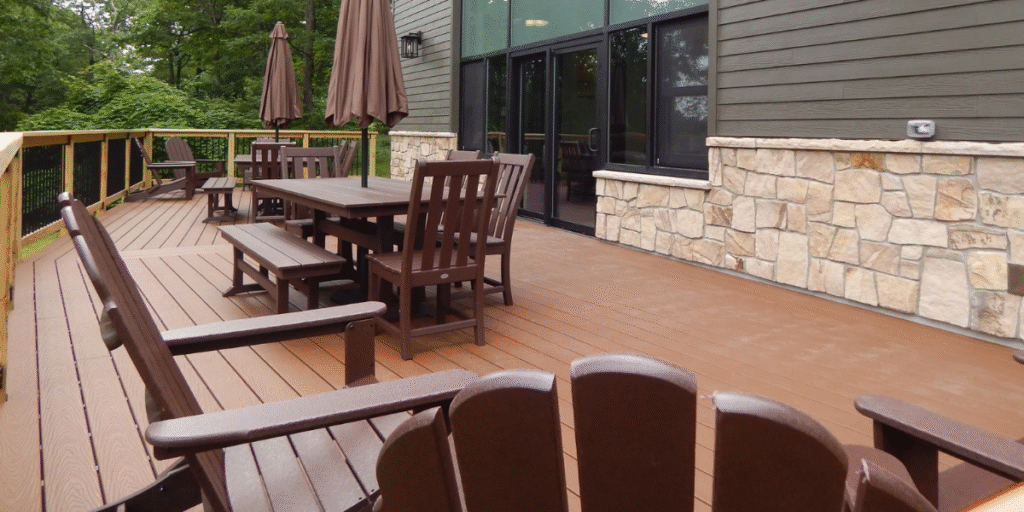
Integrating outdoor furniture into natural surroundings deepens the connection to nature, helping to promote both mental and emotional well-being.
Encouraging Outdoor Living
In residential care and recovery settings, well-designed outdoor lounge areas for addiction treatment centers equipped with comfortable outdoor seating encourage residents to spend more time outside, fostering engagement and relaxation.
Creating Dedicated Relaxation Spaces
Spaces equipped with outdoor stress-relief furniture create an atmosphere of calm and encourage relaxation. Enhancements such as gentle water features or soft wind chimes further enrich the peaceful setting, making it more inviting for quiet reflection.
Harmonizing with Natural Elements
Incorporating natural materials into outdoor seating and enhancing the space with greenery, colorful flowers, or gentle water features creates a calming atmosphere that supports relaxation and stress relief.
Boosting Overall Well-Being Through Outdoor Spaces
Thoughtfully designed outdoor areas can improve emotional resilience, social bonds, and clarity of mind.
Promoting Positive Emotions
Inviting outdoor lounge chairs elevates mood and offers comfortable, appealing places where residents naturally gather, motivating them to spend more time enjoying the outdoor areas.
Encouraging Social Connection
Outdoor seating arranged in conversation-friendly layouts encourages meaningful interaction, builds peer support, and nurtures a sense of belonging among residents.
Supporting Holistic Well-Being
Stress relief outdoor furniture combines physical comfort with emotional relaxation, offering residents a welcoming space to rest, regain energy, and support their overall sense of well-being.
Designing Outdoor Spaces for Behavioral Healthcare and Recovery Facilities
Designing outdoor spaces for recovery involves combining functionality, comfort, and therapeutic benefits to create environments that truly support healing.
Creating Cozy and Inviting Seating Areas
Flexible setups of outdoor seating for mental health facilities create adaptable spaces that work for group interaction as well as quiet, individual time, offering comfort and choice for different needs.
Incorporating Natural Design Elements
Outdoor seating that harmonizes with the beauty of natural materials such as wood and stone, enhanced by vibrant plants and soothing water elements. Together, they form a tranquil space that invites you to relax and enjoy the wonders of nature.
Supporting Mindfulness and Relaxation Programs
Dedicated meditation spaces with outdoor seating for mindfulness and meditation provide a calm setting for guided sessions, quiet personal reflection, and focused breathing exercises, enriching therapeutic routines and enhancing relaxation.
Accessibility and Inclusion
Accessible outdoor furniture in healthcare and thoughtfully planned pathways make it possible for all residents, including those with mobility challenges, to enjoy and engage in outdoor activities. These inclusive design elements create a welcoming environment where everyone can benefit from time spent outside.
Transforming Outdoor Areas for Well-Being with Furniture Concepts
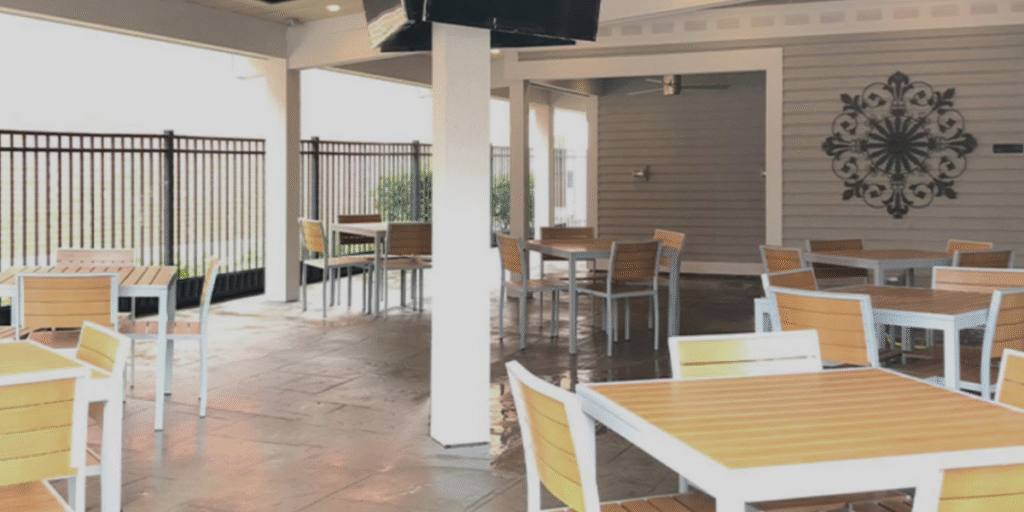
At Furniture Concepts, we understand the unique requirements of behavioral healthcare, addiction recovery, and residential care settings. Our approach focuses on designing outdoor lounge areas for addiction treatment centers that inspire healing, provide comfort, and promote stress relief.
We offer a comprehensive choice of durable and attractive outdoor furniture suited for long-term use, ensuring both functionality and aesthetic appeal. From consultation and design planning through to delivery, our team works closely with facilities to create outdoor seating arrangements that maximize relaxation, support well-being, and enhance the overall therapeutic environment for residents and staff.
Conclusion
Outdoor furniture plays a central role in creating outdoor environments that promote mental health, physical comfort, and emotional resilience. From encouraging daily outdoor living and mindfulness practices to fostering social connections and integrating natural design elements, each aspect discussed contributes to a comprehensive approach for wellness and recovery. Well-planned seating options, ranging from outdoor seating for mindfulness and meditation to outdoor stress-relief furniture, can transform healthcare and recovery settings into inviting, restorative spaces that support both short-term comfort and lasting therapeutic benefits.
Discover how our furniture concepts can help you design outdoor areas that inspire healing and connection. Contact our team to create restorative spaces that fulfill the distinct needs of your residents and staff.

